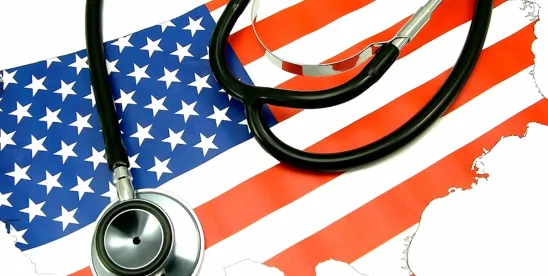The Department of Health and Human Services (HHS) has broadened its interpretation of what constitutes a “federal public benefit” under the Personal Responsibility and Work Opportunity Reconciliation Act (PRWORA). This new policy, effective July 14, 2025, reverses guidance that had been in place since 1998. The new interpretation extends PRWORA’s statutory eligibility restrictions to additional federally funded programs. As a result, access to programs including Head Start and the Health Center Program is now limited to U.S. citizens and “qualified aliens,” excluding individuals who do not have that legal status.
The PRWORA and the Definition of a ‘Qualified Alien’
Enacted in 1996, the PRWORA established a national policy that non-citizens granted entry into the United States should be self-sufficient and not depend on public resources. The law generally prohibits individuals who are not “qualified aliens” from receiving most “federal public benefits.”
Under the PRWORA, a “qualified alien” is an individual who falls into one of several categories, which include:
- An alien lawfully admitted for permanent residence (LPR or green card holder);
- A refugee admitted to the United States;
- An alien granted asylum;
- An alien paroled into the United States for at least one year;
- An alien whose deportation is being withheld;
- A Cuban and Haitian immigrant; or
- Certain victims of trafficking, battery, or extreme cruelty.
Individuals that do not fall into one of these categories are generally considered not “qualified” for the purposes of PRWORA and may not receive federal public benefits.
The 1998 Interpretation
Previously, HHS’s 1998 interpretation narrowed PRWORA’s scope by defining “federal public benefits” in a limited way. HHS considered only grants made directly to individuals and required programs to have specific, case-by-case eligibility criteria, like income tests. This approach exempted community programs like Head Start and the Health Center Program, making their services available to individuals regardless of immigration status.
The Revised 2025 Interpretation
The new July 14, 2025, notice explicitly reverses that policy. HHS now interprets “any grant” to include all federal grants, even those to states or institutions. HHS also eliminates the eligibility test, stating that a benefit is covered if it is provided to any individual, household, or family. Finally, it uses the law’s “other similar benefit” clause to classify numerous programs a type of welfare benefit, thereby subjecting them to PRWORA’s restrictions.
Affected Programs and Populations
The notice identifies the following as providing “federal public benefits,” and therefore being unavailable to non-qualified aliens:
- The Health Center Program;
- Certain behavioral and mental health services, including the Community Mental Health Services Block Grant, the Substance Use Prevention, Treatment, and Recovery Services Block Grant, funding for Certified Community Behavioral Health Clinics (CCBHCs), and grants for assisting those transitioning from homelessness;
- Medicare, Medicaid (except for emergency services), and the State Child Health Insurance Program;
- Programs supporting children and families, such as Head Start, Adoption Assistance, Foster Care, the Child Care and Development Fund, and Temporary Assistance for Needy Families (TANF);
- Funding streams like the Social Services Block Grant (SSBG) and the Community Services Block Grant (CSBG), as well as targeted programs for low-income individuals;
- Certain programs for refugees covering cash and medical assistance, social services, and targeted assistance grants;
- The Low-Income Home Energy Assistance Program (LIHEAP) and the Residential Energy Assistance Challenge Option (REACH); and
- Health profession training grants, educational voucher programs, and loan programs.
HHS stated this list is not exhaustive and may identify additional programs in the future.
Services Still Available to All Individuals
The PRWORA specifies that certain services remain available to all individuals, regardless of their immigration status. The law’s restrictions do not apply to the following benefits:
- Emergency Medicaid, not including organ transplant procedures;
- Short-term, non-cash, in-kind emergency disaster relief;
- Services for immunizations and for testing and treating the symptoms of communicable diseases;
- Certain in-kind services deemed necessary for protecting life or safety, such as soup kitchens, crisis counseling, and short-term shelter, as designated by the attorney general; and
- Certain programs for housing or community development assistance or financial assistance administered by the secretary of the Department of Housing and Urban Development, as well as the Department of Agriculture rural housing or development programs.
Verifications and Effective Date
The new interpretation is effective immediately upon its publication in the Federal Register on July 14, 2025. HHS states this is necessary to “remove incentives to illegal immigration” amid what it describes as an “ongoing emergency at the Southern Border.”
The PRWORA requires providers of non-exempt federal public benefits to verify that an applicant is a “qualified alien.” However, the statute also includes an important exception for nonprofit charitable organizations. They are not required to determine, verify, or otherwise require proof of eligibility of any applicant for access to benefits.
While HHS acknowledges this statutory provision, it also states that nothing prohibits an entity from conducting verifications.
Other federal agencies have also submitted their version of this PRWORA notice and have discussed the verification requirements. The Department of Education, for example, stated the verification exemption is “narrowly crafted” and does not relieve government entities of their underlying responsibility to ensure program compliance, even when nonprofits deliver services. Similarly, a federal district court has commented on this issue, and while not dispositive, in Poder in Action v. City of Phoenix, 481 F.Supp. 3d 962 (D. Ariz. 2020), the court said it would be “anomalous” for a government to bypass verification rules by subcontracting with a nonprofit. The court’s analysis noted that this view aligns with prior HHS guidance for other programs, which clarified that even if a contracted nonprofit chooses not to verify an applicant’s status, the lead government agency retains the ultimate responsibility to do so.
While the new HHS notice states that nothing prohibits an entity from conducting verifications, the forthcoming guidance may be critical for providers to understand their specific obligations under this new framework.



 />i
/>i
